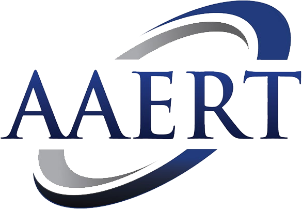Program Overview|Job Outlook|Objectives|Instructors|FAQs|Request Info

Digital Court Reporting and Legal Transcription Training OnlineCourse |
| This course is 100% online | Start anytime Enroll Now |
Become a Digital Court Reporter and Legal Transcriber
Court reporting is among the fastest-growing professions in the legal system. By providing word-for-word transcriptions at trials, depositions, and other legal proceedings, court reporters and legal transcribers play a key role in assuring justice for all parties in legal cases and disputes. In this 100% online course, you will learn the concepts and skills needed to become a court reporter and a legal transcriber. Upon successful completion, you will be prepared to pass the Certified Electronic Reporter (CER) and Certified Electronic Transcriber (CET) exams offered by the American Association of Electronic Reporters and Transcribers (AAERT).
Job Outlook for Digital Court Reporter and Legal Transcription
- The US Bureau of Labor Statistics (BLS) expects the demand for Court Reporters and Simultaneous Captioners to grow by 9% between now and 2029. This is much faster than the average growth rate for all jobs. The BLS notes that job prospects will be best for candidates trained in digital tools and real time transcription.
- According to the BLS, court reporters earn $60,130 per year, on average. Salary.com states that salaries for court reporters range between $29-93,000 per year, depending on location and experience.
Digital Court Reporter and Legal Transcription FAQs
What is the difference between court reporting and legal transcription?
Generally, court reporters provide a verbatim record of words spoken by the parties in a live legal proceeding such as a hearing, trial or deposition. Transcribers create hard copies of dictation given to them, usually by attorneys, either by live transcription or working from audio files.
Is Court Reporting a good long-term career?
The BLS notes that the growth of electronic technology in legal settings is likely to shift the nature of court reporting and transcription in the future. However, the Bureau notes that any increase in the use of technology is likely to be matched by an increase in demand for professionals who can deploy, manage and monitor the quality of its output.
Where do Digital court reporters and Legal transcribers work?
Most court reporters work in courtrooms, offices or legislative chambers and meeting rooms. Legal transcribers often work in attorney's offices and meeting facilities. Many also work remotely, offering their services on a contract basis from home or from an independent office.
How long does it take to become a medical biller and coder?
In most cases, it takes between one and three years to become a medical biller and coder. Earning a medical billing and coding certification can take up to one year, while earning an associate degree can take up to three years.
- Develop the skills you need to become a successful digital reporter and legal transcriber who can work in the field and at home
- Professionalism, ethics, and confidentiality
- Fundamentals of our legal system including Legal, medical, and industry terminology
- Legal, medical, and industry terminology
- Digital reporting hardware and software including practice using digital recording software
- Transcript formatting, focusing on federal court systems
- Be in a position to sit for and pass the AAERT's (American Association of Electronic Reporters and Transcribers) Certified Electronic and Transcriber exams, further broadening your options for employment.
Prerequisites and Requirements
High School Diploma or equivalent and eligible for notary public commissions in your state.
Hardware Requirements:
This course must be taken on a PC device. A Mac OS is not compatible.
Software Requirements:
- PC: Windows 7 or later operating systems.
- Browser: The latest version of Google Chrome or Mozilla Firefox are preferred. Microsoft Edge and Safari are also compatible.
- Adobe Acrobat Reader.
- ExpressScribe software. You will be provided with download instructions upon enrollment.
- Software must be installed and fully operational before the course begins, except for the ExpressScribe software.
- Other: Email capabilities and access to a personal email account.
Digital Court Reporter
- The Legal System
- Terminology
- Hardware
- Your Software and Annotations
- On the Job and On the Record
- Court Work and Large Proceedings
- Professionalism in the Legal System
- Course Wrap up
Legal Transcription
- Transcriptionist Software Setup
- English Language
- Terminology
- Grammar and Punctuation
- Building the Transcript
- Transcription Assignments & Working Environment
- Transcription Assignments & Course Wrap Up
Merritt Gilbert
Merritt Gilbert is a legal professional with over 10 years of industry experience. She is a Certified Electronic Reporter and holds a Certificate of Voice Writing. She graduated with a Bachelor of Science from Florida State University.
Natalie Hartsfield
Natalie Hartsfield is a court reporter with more than 10 years of experience in the legal field. She has taught court reporting since 2007. Natalie holds an Occupational Associate Degree in Court Reporting from Stenotype Institute.
Registration and Enrollment
This course is 100% online. Start anytime.


